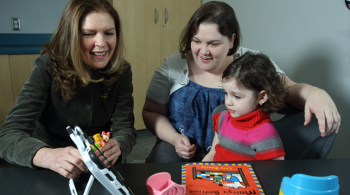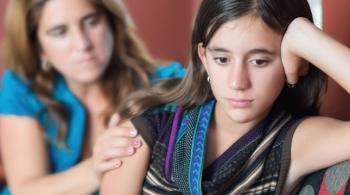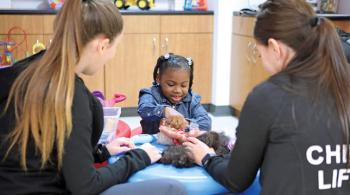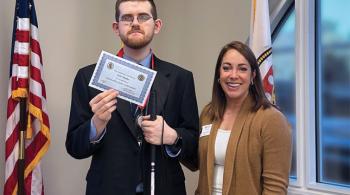BALTIMORE, April 28, 2025— In a first-of-its-kind study, researchers at Kennedy Krieger Institute have developed and tested a virtual mental health crisis prevention program designed specifically for families of autistic children.
The pilot trial, published in the Journal of Autism and Developmental Disorders, found that the 3-session parent training significantly improved confidence, preparedness, and knowledge around crisis management—without increasing clinical risk or requiring in-person intervention.
Dr. Luke Kalb, lead author and director of the Informatics Program at the Center for Autism Services, Science and Innovation (CASSI) at Kennedy Krieger, explains that autistic children are at elevated risk for psychiatric emergencies.
“With autism, mental health crises can escalate quickly, and parents are often told their only option is the emergency room,” Kalb said. “But emergency departments are rarely designed to meet the needs of autistic children. We want to give families a safer, more empowering alternative before a crisis occurs. We want to focus on crisis prevention, an area of research that few are addressing.”
Delivered through three video-call sessions, the program guided caregivers through a four-stage crisis framework: Prevention, Pre-Crisis, Crisis, and Post-Crisis. Led by licensed clinicians, the sessions incorporated role-playing, real-life scenarios, and structured worksheets. Participants received a workbook with practical tools, including a customizable “Quick Handoff Sheet” for emergency responders. The program emphasized routine-building, early identification of crisis behaviors, and post-crisis planning, equipping families with the confidence and skills to navigate challenging situations more effectively
An important takeaway: 96% of caregivers were able to implement the strategies and rated the program highly. Despite high rates of crisis in autistic youth, no tailored prevention programs in the U.S. have existed before this one. Kalb hopes this program is eventually accessible enough to be implemented beyond Kennedy Krieger and across the U.S.
“Emergency rooms can be traumatic for autistic kids. It’s loud, unpredictable, and full of unfamiliar staff,” Dr. Kalb said. “By arming parents with proactive tools in advance, we’re working towards reducing the chance that families ever have to end up there in the first place.”
Future research will evaluate whether the program reduces actual psychiatric hospitalizations or emergency room visits. Visit our website to learn more about this research and work happening at Kennedy Krieger Institute.
###
About Kennedy Krieger Institute
Kennedy Krieger Institute, an internationally known, non-profit organization located in the greater Baltimore/Washington, D.C. region, transforms the lives of more than 27,000 individuals a year through inpatient and outpatient medical, behavioral health and wellness therapies, home and community services, school-based programs, training and education for professionals and advocacy. Kennedy Krieger provides a wide range of services for children, adolescents and adults with diseases, disorders or injuries that impact the nervous system, ranging from mild to severe. The Institute is home to a team of investigators who contribute to the understanding of how disorders develop, while at the same time pioneer new interventions and methods of early diagnosis, prevention and treatment. Visit KennedyKrieger.org for more information about Kennedy Krieger.















